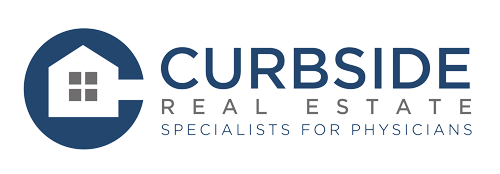Physician Home Loan Tips: Saving Smart

Saving Smart: Home Loan Tips for Physicians
For many physicians, the dream of homeownership often comes with the weight of making the best financial decisions, especially when navigating the complex world of home loans. The good news? There are tailored solutions, like physician home loans, that offer unique benefits and savings opportunities. This guide dives into the specifics of how doctors can save money on home loans, ensuring a smoother financial journey.
Why Traditional Home Loans Might Not Fit
Most traditional home loans don’t take into account the financial journey of a physician. With extensive student loans, a doctor’s debt-to-income ratio might not look appealing to traditional lenders. They might overlook the fact that physicians have a higher earning potential and stable career growth, which ensures loan repayment.
Understanding Physician Home Loans
Before delving into the savings tips, it’s essential to understand what physician home loans entail. Unlike conventional mortgages, physician home loans are designed keeping in mind the financial trajectory and challenges of doctors. Features might include:
– Lower or no down payment requirements
– Flexibility in viewing student loans when determining eligibility
– Absence of private mortgage insurance (PMI)
Tip 1: Harness the Power of No PMI
Traditional mortgages often require PMI if the down payment is less than 20%. However, many physician home loans waive this requirement. This can result in substantial savings over the life of the loan. To leverage this, ensure you:
– Confirm with the lender about PMI policies.
– Compare the total cost of a physician home loan (without PMI) against other mortgage options.
Tip 2: Negotiate Interest Rates
While physician home loans offer numerous benefits, the interest rates might sometimes be slightly higher than conventional loans. Yet, there’s room to negotiate. As a physician:
– Understand your credit score and its implications.
– Shop around. Get quotes from multiple lenders.
– Be open about matching or beating offers from competing lenders.
Tip 3: Make Strategic Down Payments
While it’s tempting to go for minimal down payment options, consider the long-term implications. A more substantial down payment can:
– Reduce the total interest paid over the loan’s life.
– Offer you better interest rates.
– Lower your monthly payments.
Balancing the immediate financial relief with long-term savings is crucial.
Tip 4: Physician Relocation – Factor in Resale Value
If you’re considering a home loan for doctors due to frequent physician relocation in your early career, think about the property’s future resale value. Choosing homes in growing neighborhoods or near reputable schools can ensure a better return on investment when it’s time to move.
Tip 5: Refinance When It Makes Sense
The financial landscape, personal circumstances, and market interest rates change. Stay attuned to these shifts. Refinancing can:
– Help you tap into lower interest rates.
– Shorten your loan term.
– Consolidate other debts.
However, always consider the costs associated with refinancing against the projected saving
Tip 6: Make Biweekly Payments
Instead of the standard monthly payment, consider making half-payments every two weeks. This strategy results in one extra full payment annually, reducing the loan’s term and the interest paid.
Tip 7: Consult with a Financial Advisor
While these tips offer a solid foundation, every physician’s financial situation is unique. Consulting with a financial advisor, especially one familiar with physician home loans, can provide tailored strategies to maximize your savings.
For a broader understanding of home loans and financial planning, visit the American Association of Physician Finance Advisors.
Seeking more insights or have questions specific to your situation? Schedule a Curbside Consult here. If you’re pressed for time, simply complete the consult form, and we’ll match you with solutions tailored just for you.
Disclaimer: This blog is intended for informational purposes only and does not constitute real estate, medical, or financial advice. Always consult with a qualified professional before making any decisions related to your home or career.
